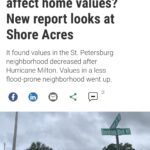Any private and public discussion on discretionary, or policy-driven, investment in greater built environments resilience evolves around economics. However, while the cost-benefit of disaster resilience is a key issue, very little independent research has been conducted on the subject.
RAF aims to stimulate such research through funded studies on resilience economics in collaboration with other non-profits and major universities.
A. Policy cost-benefit analysis, risk assessment and construction economics, related to mitigating multi-hazard (wind, water and fire) impacts on residential and light commercial buildings.
Such research will provide value to public decision makers of building standards and be informative for general consumer awareness. Data gathering and analyses of various ‘as-is’ and ‘what-if’ scenarios from one or more specific cities, counties or states is anticipated.
B. The correlation between housing prices/affordability and construction costs related to multi-hazard (wind, water and fire) mitigation.
The research will determine to what extent various hazard mitigation codes have affected housing price/affordability, compared to other factors such as land use regulations, building density limits and other non-mitigation variables in a multitude of US markets. Such research will provide value to public decision makers of building standards and be informative for general consumer awareness.





